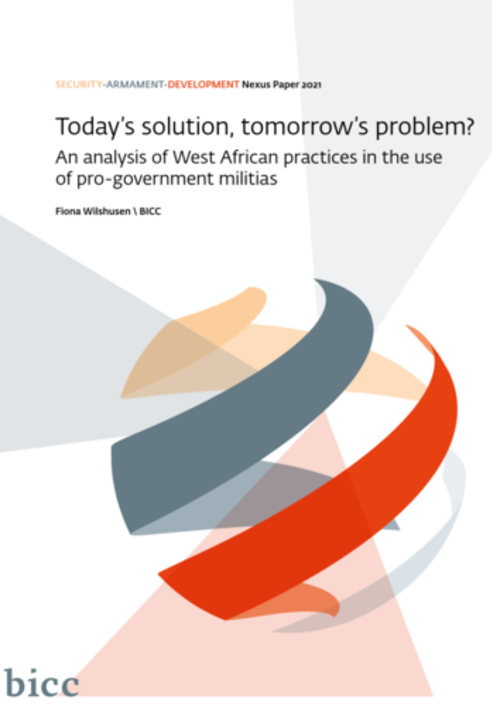Publications
Today’s solution, tomorrow’s problem? An analysis of West African practices in the use of pro-government militias.
Release Date
2022
Language
- English
Topics
- –
In this Paper, I address the question of whether and under what circumstances the deployment of pro-government militias (PGMs) can reduce violence against civilians, specifically in the Sahel. My analysis— based on a literature review and case studies on Burkina Faso, Cameroon, Mali, Niger, and Nigeria—suggests that rather than representing a solution, PGMs tend to become part of the problem. In most cases, PGMs actively carry out acts of violence against civilians or passively contribute to an increase in violence.
According to my analysis, PGMs most tend to contribute to violence against civilians when:
Only when PGMs are socially embedded in the communities they aim to protect and are at least normatively controlled by local authorities, as well as defensively oriented and predominantly unarmed, do they—for example in Cameroon—contribute to a decrease in violence against civilians.
The findings presented in this Paper have implications for German development policy. As outlined, PGMs can—under very specific circumstances—help to strengthen the resilience of the local population in armed conflicts. However, in view of the negative effects of most PGMs, transitional development assistance programmes must be tailored according to the risk arising from the presence of PGMs. Furthermore, since many of these groups prevail past the end of the armed conflict in question, they need to be considered in post-conflict reconstruction processes, especially in demobilisation, disarmament and reintegration (DDR) programmes and security sector reforms (SSR) to allow sustainable peace and development.
Finally, the findings also have implications for German and European policy on arms transfers. Burkina Faso, Mali, Niger, and Nigeria are key partners of Germany’s Enable and Enhance Initiative (Ertüchtigungsinitiative) and may also receive military arms and equipment via the European Peace Facility (EPF). At the same time, three of these governments not only cooperate with PGMs, but have also (allegedly) provided them with weapons. While German arms shipments to countries like Burkina Faso, Mali, Niger, and Nigeria are unlikely to take place under the first initiative, they cannot be ruled out under the EPF. This underscores the need for strict arms export restrictions or postshipment controls at the European level.
PDF-Download

Cite as
Document-Type
Other publications
Publisher
BICC
Place
Bonn
Countries/Region
Mali , Burkina Faso , Nigeria , Niger , Cameroon



